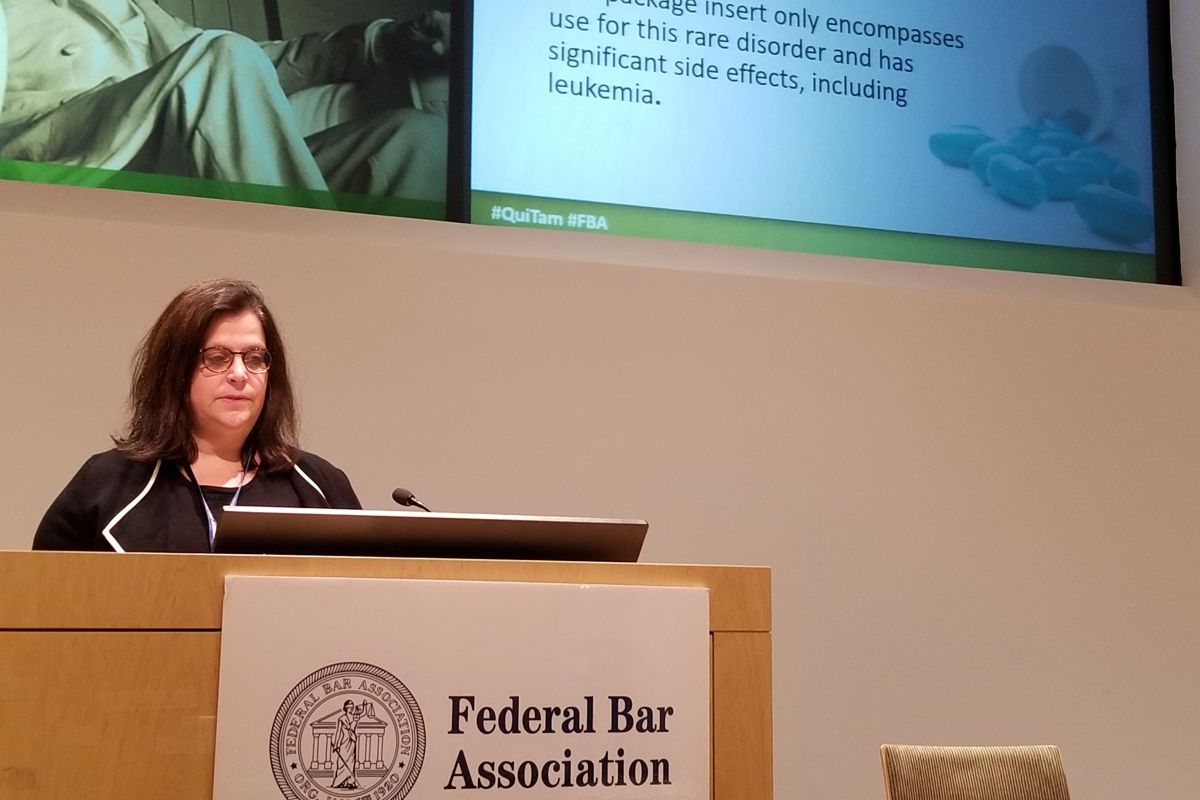By Reuben Guttman and Traci Buschner who practice with Guttman, Buschner & Brooks PLLC in Washington DC.
Commentary: Give Big Pharma a dose of strong regulatory medicine
Pfizer is paying the U.S. government and a number of states more than $450 million to resolve allegations that its subsidiary, Wyeth Pharmaceuticals, unlawfully marketed the immunosuppressant drug, Rapamune.
The two Pfizer (NYSE:PFE) whistleblowers who initiated the case, Marlene Sandler and Scott Paris, were pharmaceutical sales representatives who raised concerns through a lawsuit filed under the Federal False Claims Act that their company actively marketed Rapamune for purposes not approved by the FDA and paid kickbacks to doctors in order to increase sales.
The resolution of the Rapamune case is one more settlement in a long procession of cases brought against the pharmaceutical industry for unlawfully marketing drugs. Last year, GlaxoSmithKline (NYSE:GSK) paid (LSS:UK:GSK) more than $3 billion to resolve allegations of misbranding and kickbacks with regard to a number of drugs including the blockbuster asthma and COPD drug, Advair.
Meanwhile, Abbott Labs (NYSE:ABT) paid a total of $1.6 billion to resolve civil and criminal allegations with regard to marketing derelictions of its drug Depakote. And, as recently as April, Amgen (NASDAQ:AMGN) paid almost $25 million to settle claims that it had paid kickbacks to induce sales of its anemia drug, Aranesp.
These are only some examples; over the last decade, almost every major pharmaceutical manufacturer has been sanctioned either civilly, criminally, or both for unlawfully marketing their drugs.
More than money
Unfortunately, these cases are remembered for the money. The press thrives on resolutions that break new monetary barriers of recovery. The lawyers bask in this success of high-profile settlements. The regulators make claims at least hinting that compliance enforcement works.
Somewhere lost in the discussion is the patients.
Today, there are countless people whose drug regimens have been dictated at least in part by marketing agendas and not medical necessity. There are the elderly in nursing homes who are easy prey for the industry because they too often lack the ability to ask questions about their treatment, let alone provide the truly informed consent to allow it to occur. Too often they are placed on drugs because of protocols implemented by intermediary long-term care pharmacies, which are incentivized with payoffs by the pharmaceutical industry.
Then there are the children whose doctors are either on the payroll of the industry or have been influenced by paid industry opinion leaders. With doses of anti-psychotics and anti-epileptics touted as mood stabilizers, too many children are dosed with drugs to change behaviors that in yesteryear would have been dealt with through less-invasive means.
Finally, there are patients, like those on Rapamune, who have life-threatening illnesses and must make decisions based on truthful information. They are in no position to distrust their physicians or the pharmaceutical industry that makes their drugs. On the edges of life itself, to do so would be to question those who provide any hope of recovery. This is what the industry marketers know.
Checkup and testing
Unlawfully marketing drugs is not just about the government or third-party payers paying for unnecessary products. It is about disseminating misinformation to those who have a window of time and opportunity to make critical medical decisions.
If our physician had committed the same derelictions, and paid fines to resolve civil and criminal penalties, it is a safe bet that we would be looking for another doctor. Yet we do not have the same choice, given the relatively limited number of companies that manufacturer drugs, which when used for proper purposes and in a proper manner can be life-changing, if not life-saving.
Pfizer has paid its fine to the Department of Justice and to the states. It is now time for Congress to take a hard look at the conduct of the pharmaceutical industry. Oversight by the FDA is not sufficient. A systemic marketing violation impacting thousands of patients is an exponential train wreck.
In this country, a train wreck warrants an investigation by the National Transportation Safety Board. There needs to be a similar board, perhaps a Pharmaceutical Safety and Investigation Board, which looks at derelictions like the one that occurred with regard to Rapamune and makes a full disclosure to the medical community.
The tragedy of the Rapamune case, and cases like it, is not the lost dollars to the government but the dissemination of misinformation through unlawful marketing that skews medical decision-making. For this injury, money alone does not set the record straight.

